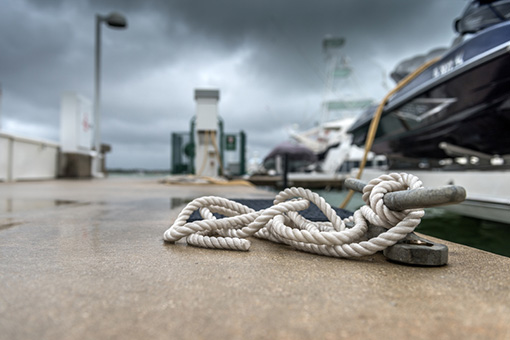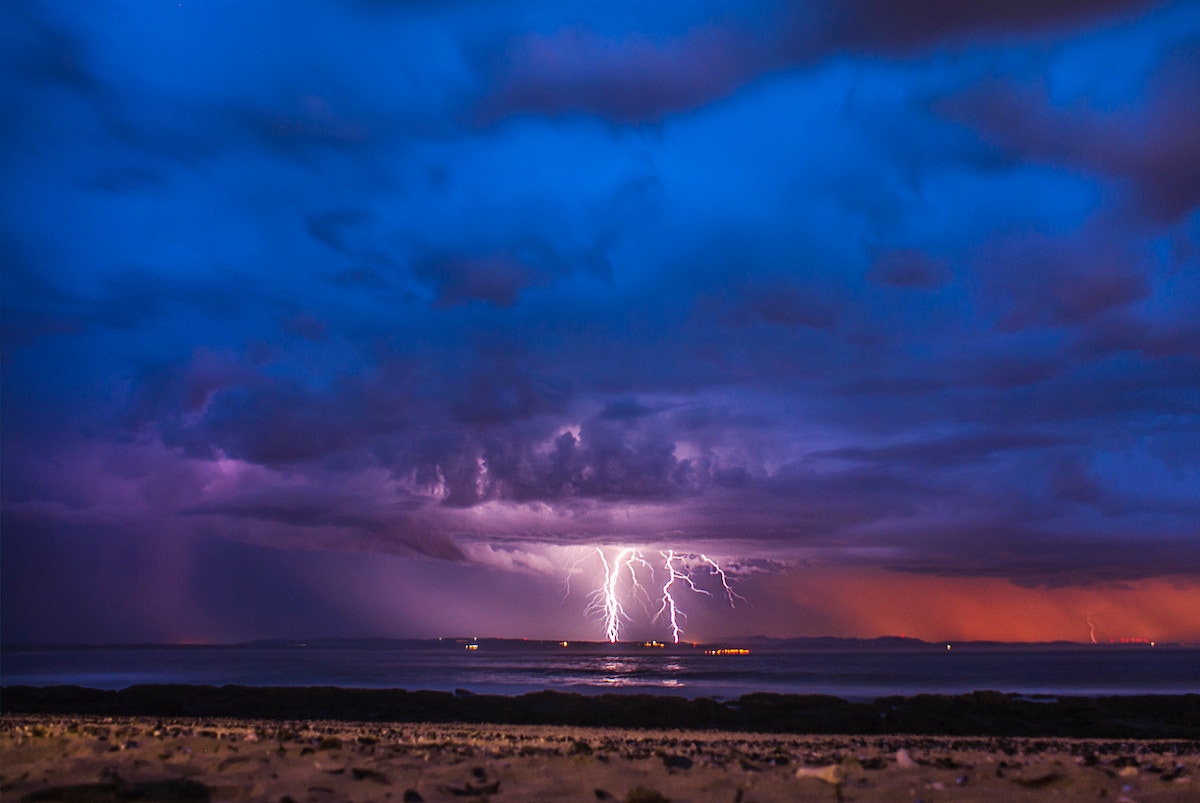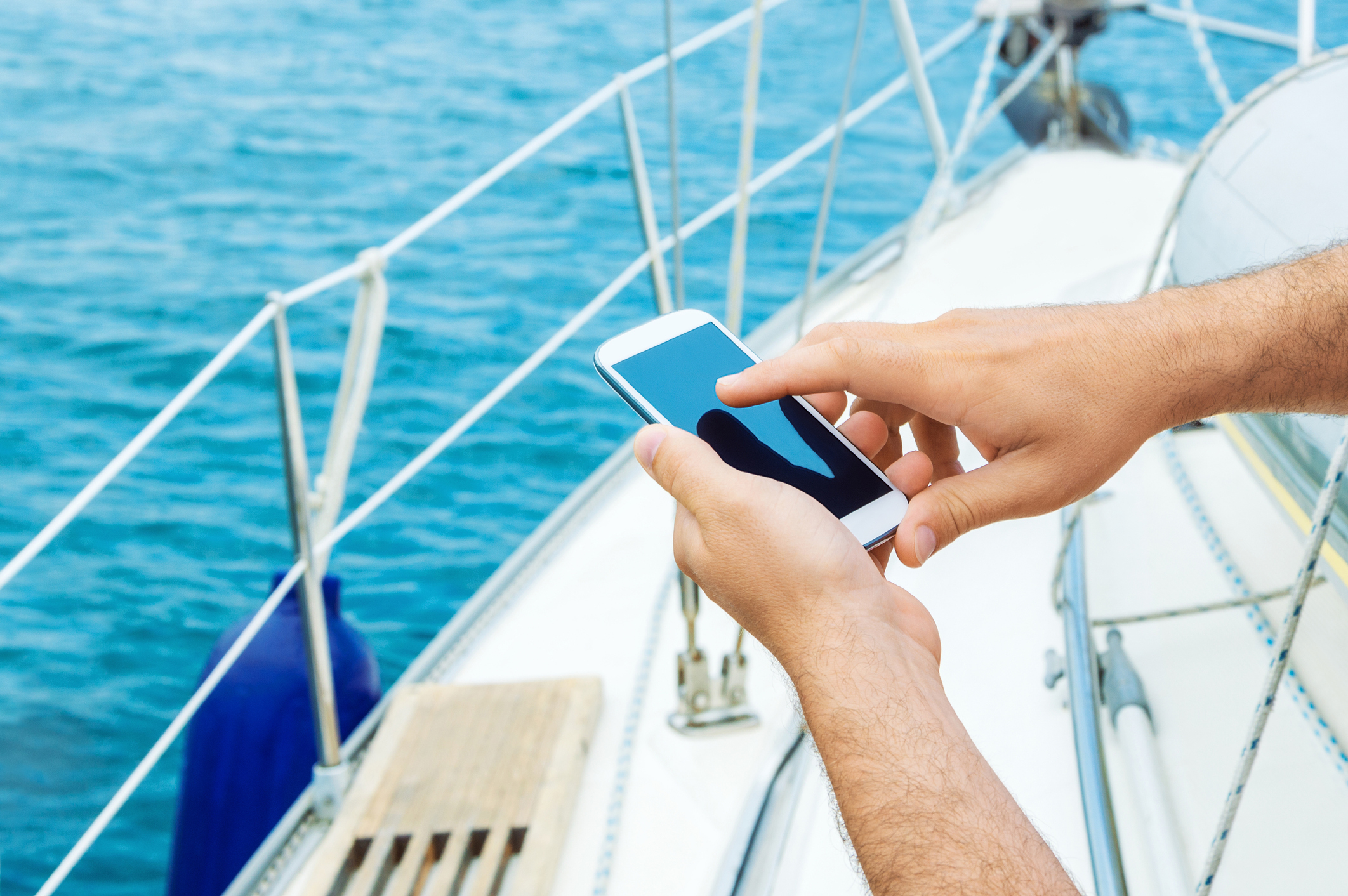Learning how to prepare for a hurricane can be intimidating and a little bit frightening, especially in a midst of a storm approaching. If you own a boat anywhere along the East Coast or the along the shores of the Gulf of Mexico, you'll likely have to deal with some direct or indirect effects associated with a hurricane.
Being proactive and getting prepared before the hurricane or tropical storm hits is extremely important—not only for the safety of you and your loved ones, but also for the safety of your boat.
In this post, we'll explain how you can prepare yourself and your boat for an impending hurricane. We'll also share tips for safety and boat recovery after a hurricane hits.
Follow our Hurricane Preparation Checklist
Hurricane Preparedness Checklist for Boat Owners
- Stay informed and up-to-date on weather reports.
- Trailer your boat, and head inland to a safer region that is out of reach from the storm.
- If you can't transport your boat out of the area, then prepare to batten down the hatches.
- Remove anything that's not permanently part of the boat.
- Apply extra fenders and double up on your normal dock line usage.
- Check that all hatches and portholes are secure.
- Drop an anchor fore and aft.
- Evacuate to a safe location.
4 Tips for Hurricane Safety: How to Prepare Your Boat
1. Stay Informed
One of the reasons that boaters love being out on the water is that it helps them destress and get away from life's everyday troubles. However, if you live an area that’s exposed to hurricanes (or other extreme weather conditions), you need to be aware of upcoming storms.
To stay updated on upcoming storm systems, download a reliable weather app, such as The Weather Channel, Dark Sky Weather, or AccuWeather. Of all the things you can do to keep safe when you’re in the path of a hurricane, advance warning is, by far, the most effective.
2. Get Out Of The Way
For most recreational powerboats, many times the best solution is to pull the vessel and head inland. This reduces the impact of the initial storm surge and the accompanying rain and hurricane force wind. The sooner you do this the better, because there will be many people who either don’t or can’t move their boats in advance. They will be the ones jammed onto back roads and highways when mandatory evacuation orders are issued.
3. Batten Down The Hatches
For boats that can’t be moved, it’s time to go old-school mariner and batten down those hatches. That phrase has survived modern times because it precisely describes what you need to do in a crisis situation.
- First, remove anything that’s not permanently part of the boat. That means cushions, toasters, life jackets, curtain rods and anything else that would fall off if the boat gets sideways. If you leave these items aboard, you not only risk losing them for good, but you could create dangerous projectiles for anyone or anything nearby during the worst parts of the storm.
- Use plenty of extra fenders, used tires, or anything else that will absorb impact and lash them to the boat.
- Quadruple your normal line usage, springing to any and all potential contact points.
- Check that all hatches and portholes are secure and detach or cover windscreens.
- Drop an anchor fore and aft and ensure they’re well set.
4. Don’t Try To "Ride" Out the Storm
When a storm is approaching, some boaters try to ride out the storm on their boat in open water. Although you may think this sounds better than evacuating or securing your boat, this won't help you or your boat stay safe during hurricane winds and rain.
Although as boaters, our boats become an important part of our lifestyles and identities, they aren't worth our safety. They can always be replaced, and you should put your personal safety first in the event of a hurricane.
9 Post-Hurricane Safety Tips for Boaters
Once the hurricane has passed, it's time to move into recovery mode. Below, you'll find tips for safely recovering your boat and the necessary next steps you should take.
- Follow Flood Warnings: Don't drive in flooded waters or ignore local flood advisories. Although it's understandable that you want to start repairing your boat, it's crucial that you do so safely. Once you're cleared to go check on your boat, be aware of fallen power lines, debris, and other obstacles in your path.
- Be Careful in Floodwater: If you have to be in floodwater, it's crucial to wear a life jacket at all times. As you likely know, having a life jacket on your boat is crucial, so you should have it on-hand anyways.
- Wash Your Hands and Treat Injuries Immediately: Floodwater can contain dangerous bacteria and chemicals that may put your health in danger. If you're exposed to floodwater, wash your hands thoroughly with soap and clean water. In addition, if you suffer any wounds or injuries, get them treated as soon as possible.
- Review Your Boat Insurance Policy: Most likely, you have some type of boat insurance policy in place. These policies typically cover boat damage caused by a hurricane, so you can rest easy. However, it's still important to review your insurance policy to fully understand what your policy covers.
- Gather Necessary Supplies: As you prepare to repair and clean your boat after a storm, you should gather supplies that will make the process easier. These items include trash bags to dispose of debris, boots and gloves to move about your boat, duct tape to secure any cracks or broken parts, and cleaning supplies.
- Assess Your Boat for Damages: Before you check out your boat, confirm that your marina is open, docks are fixed, and that it is safe to visit. Once you receive confirmation, check on your boat as soon as possible. Remember to bring proof of boat ownership, as some marinas deal with looters after a hurricane.
- Immediately Remove Moisture and Dirt: To avoid further issues, begin removing any mud, moisture, and debris from the boat. This will prevent mold and permanent damage.
- Check the Boat for Structural Damage, Leaks, and System Issues: Next, you should check the bilge to ensure that the boat hasn't experienced any underwater damage, and identify any problems with the engine fuel systems, bilge pump, electronic systems, and other parts of the boat. Although you may be able to fix some issues yourself, it's best to record damage for your insurance company.
- Preparing for the Worst: How to Handle a Sunk or Beached Boat: No boater wants to prepare for it, but you should consider how you'll handle an unsalvageable or extremely damaged boat. Again, all damage should be documented for your insurance company, and you should contact them to determine next steps.
Conclusion
Preparing for hurricane season isn't a fun topic for boaters, but it's one that is crucial to keep in mind. Protecting your boat, and yourself, is paramount, and you'll have peace of mind if you have a plan in place for before and after the storm.
Editor’s Note: This article was updated in October 2022.


